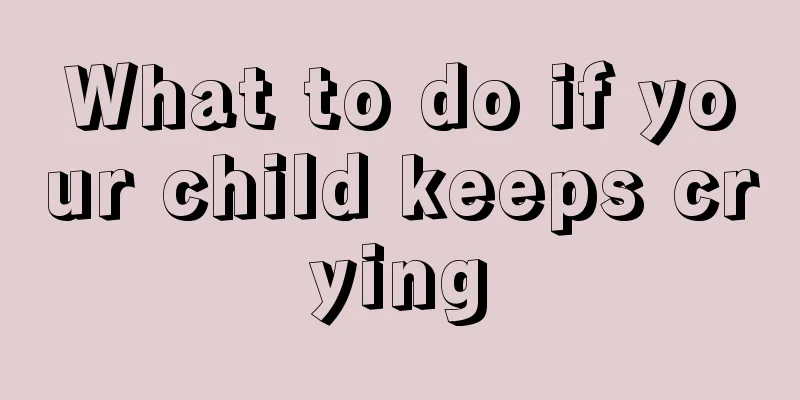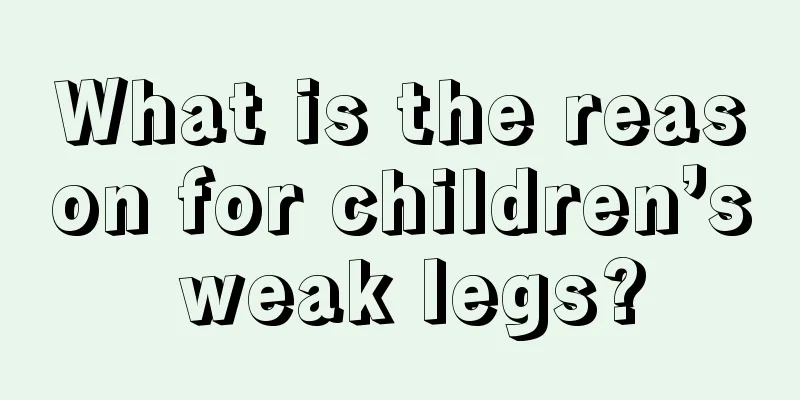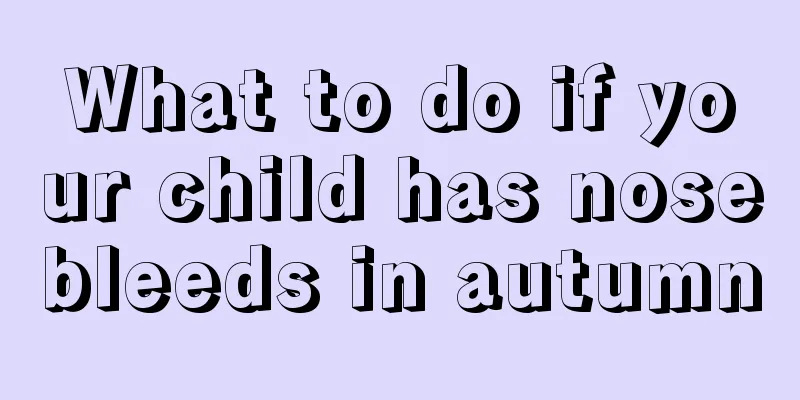What to do if your child keeps crying

|
Every child is a treasure in the palm of his or her parents’ hands, and parents hope that their children have a happy childhood. However, many children always like to express their emotions by crying. Sometimes, children’s frequent crying will give parents a headache, and they don’t know what to do, or there are some physical problems with the children. Especially when the children won’t stop crying, it often affects the parents’ mood. Let’s find out what to do when the children won’t stop crying? What to do if your child keeps crying Most physiological crying is caused by hunger. Putting the nipple in the baby's mouth will usually stop the crying. Pathological crying, generally speaking, is unusually loud, lasts a long time, or stops and starts at an irregular pace. The crying is weak or accompanied by groaning, and is sometimes intermittent. Sometimes the baby may be out of breath, and is sometimes accompanied by high fever or other abnormal manifestations. Feeding or caressing may only work temporarily. There is a clear difference between the two. Parents need to pay special attention to the following situations: 1. The baby cries at night. Most of the reasons are due to the fact that their habit of waking up during the day and sleeping at night has not yet been fully formed, and they play too much during the day or before going to bed, but many are also caused by upper respiratory tract infections that cause nasal congestion that affects breathing and eating. In addition, pinworms harass the anus at night, causing discomfort and is also a common cause of night crying in infants and young children. Therefore, the "night crying child" should be carefully examined to find out the cause and treat it accordingly. 2. The baby cries while breastfeeding, avoids the nipple, and has bad breath and drooling. The reason may be oral infection, such as thrush, stomatitis, pharyngitis, etc., which affects their sucking or swallowing, so they cry every time they eat. 3. When a baby cries, he shakes his head or scratches his ears with his hands, and the crying becomes louder when his auricle is pulled. This indicates that he may have acute otitis media or furunculosis in the external auditory canal, or that foreign objects such as small insects have entered the external auditory canal. 4. If a baby's crying is hoarse, it may be due to vocal cord edema caused by acute laryngitis; hoarse crying accompanied by croupous cough and difficulty breathing may be due to diphtheria causing inflammation of the laryngeal and tracheal mucosa, resulting in partial obstruction of the respiratory tract. 5. If a baby cries rapidly and urgently, accompanied by wheezing, flaring nostrils and cyanosis of the nasal and lip area, these are manifestations of pneumonia and bronchiolitis. If the baby's general condition is fine and he or she only becomes breathless and has a cyanotic face when crying, then the baby may have congenital heart disease. 6. If a baby cries before defecation, it is mostly because the stool is dry and hard and difficult to pass; while if a baby cries during defecation, it is mostly because of anal fissure, rectal or sigmoid colon inflammation, the latter of which may be accompanied by mucus and bloody stools. 7. If a baby suddenly cries loudly and becomes restless, with his legs curled up, and continues crying even after being fed or held, and the crying stops temporarily if you gently press his abdomen with your hands or place a hot water bottle on his abdomen, this may be spasmodic colic, diarrhea, or intestinal parasites. Sometimes, indigestion is caused by breastfeeding or overfeeding, which leads to intestinal bloating or increased intestinal motility. The abdominal pain will be relieved after defecation and the crying will stop. 8. The baby suddenly starts crying and becomes restless, with a pale face and a very painful expression. The attacks are paroxysmal and the baby is relatively quiet during the intervals. The baby may also have vomiting, jam-like bloody stools, and a sausage-shaped mass in the abdomen. These are typical manifestations of intussusception in infants. 9. Children's nervous and mental sensitivity increases, and they become irritable, cry easily, have restless sleep, are easily startled, sweat profusely, and have baldness on the occipital region. These are all early manifestations of vitamin D deficiency rickets. 10. If a baby suddenly starts crying in a rapid, high-pitched voice that stops quickly and has an "annoying scream", he may have central nervous system diseases such as neonatal intracranial hemorrhage and purulent meningitis, which may be accompanied by symptoms such as repeated convulsions, projectile vomiting, and coma. Examination revealed a full anterior fontanelle, stiff neck, increased muscle tone in the limbs, and pathological nerve reflexes. 11. The baby cries monotonously and weakly, has no expression, is indifferent, has no interest in the surroundings, and is slow to react. This is a sign of severe malnutrition and may involve an intellectual developmental disorder. 12. If a baby cries for a long time, his cry is miserable and his expression is painful, but he looks healthy, parents should check carefully to see if he has internal injuries caused by an accident, which is most likely to happen in winter when the baby is wearing more clothes. For example, if the elastic band of the diaper gets embedded in the child's groin tissue and causes local ulceration, the baby will cry constantly. This is a real example of accidental injury. 13. Inflammation of the umbilicus in newborns, erosion in the skin folds around the anus, between the scrotum and thighs, and in the armpits, itching caused by wet skin, and inguinal hernia that falls into the scrotum and becomes incarcerated are all common causes of crying in babies. As long as you take off your clothes and check carefully, you will find the problem. Therefore, parents should observe their baby's crying behavior carefully and take it as a sign of the child's health. Do not be careless or deal with it simply and roughly. If you find any problems, be sure to go to the hospital for examination and treatment in time. The above is an introduction to what to do if your child won’t stop crying. When parents encounter children who often cry, they should not blindly blame the children first. They must find out the cause of the situation and then make adjustments to the child. If the child is unwell, they must go to the hospital for examination and treatment in time. |
<<: Why is the child crying and not sleeping?
>>: Why do children cry at night?
Recommend
Can a 10-month-old baby use air conditioning?
The weather in the dog days of summer is hot and ...
Calcium supplement for children
Many mothers start taking calcium supplements fro...
Children often have low-grade fever
If a child often has a low-grade fever and parent...
Do children have faster heart rates than adults?
Everyone's heartbeat speed is different in da...
Can children's sinusitis heal on its own?
The occurrence of sinusitis is closely related to...
What should I do if my child has prickly heat?
It's hot in summer, and the most annoying thi...
How to supplement zinc deficiency in 8-month-old babies
In daily life, some mothers find that their child...
What are the treatments for baby's oral ulcers?
When children are very young, their immune functi...
How to easily arrange for a 5-year-old child to sleep in a separate bed from his parents
Watching my son who sleeps next to me grow up day...
What to do if your baby has a bad taste in his mouth
Sometimes, if you smell carefully, you will find ...
Why does a child suck his lower lip?
Although some movements of babies seem very cute ...
What to do if a two-year-old baby has small red bumps on his face
Small red bumps on a two-year-old baby's face...
What to do if your child sweats a lot while sleeping
Many parents don’t know what to do when their chi...
What is the treatment for a child's cough?
When children are sick and in pain, the parents a...
What are the benefits of baby massage?
Infant massage is essential. It is a medical meth...









